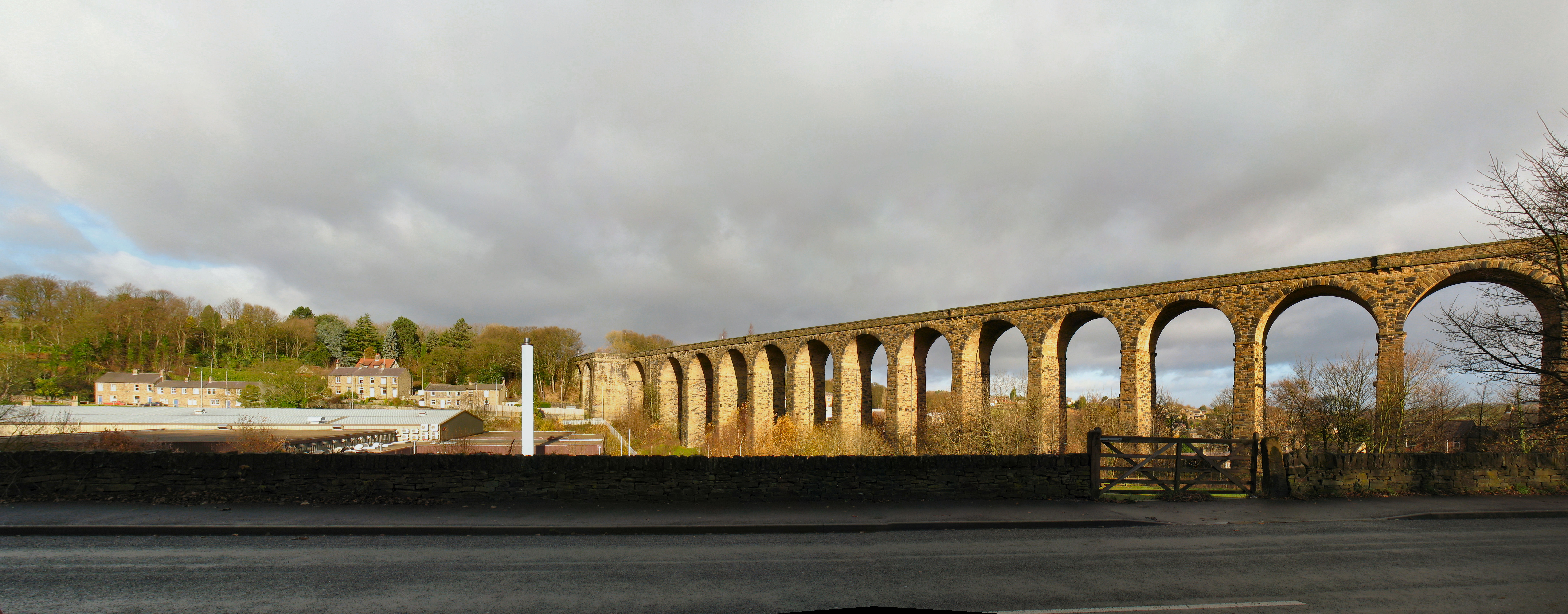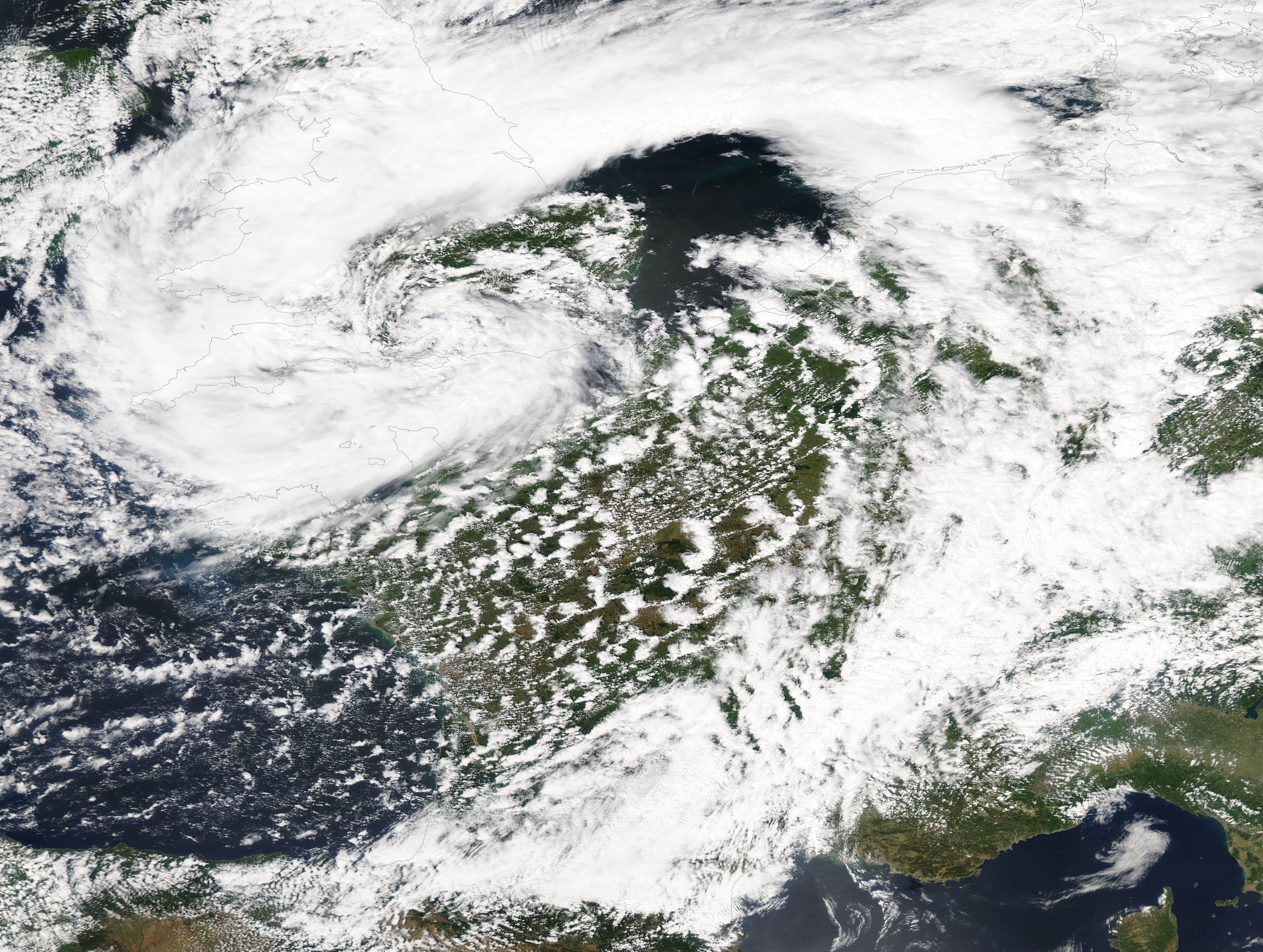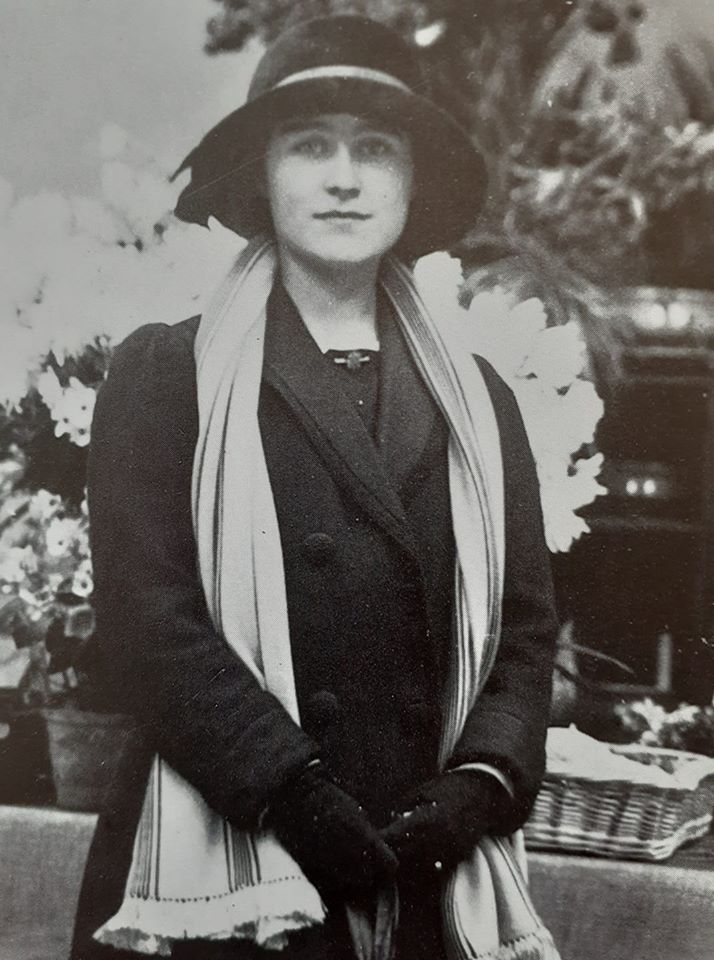|
Denby Dale
Denby Dale is a village and civil parish in the metropolitan borough of Kirklees in West Yorkshire, England. It is 8 miles north-west of Barnsley and 10 miles south-east of Huddersfield. The village is the main village in the Denby Dale civil parish that also covers Lower Denby, Upper Denby, Upper Cumberworth, Lower Cumberworth, Skelmanthorpe, Emley, Emley Moor and Clayton West. The parish had a population of 14,982 according to the 2001 census, increasing to 16,365 at the 2011 census. The parish council gives the electorate of the village itself as 2,143. The River Dearne runs through the village; in the floods of 2007 it burst its banks on two occasions and caused damage to Springfield Mill. History First recorded as Denby Dyke. Before the Industrial Revolution the village was sparsely-populated with a small textile industry at the crossroads of the Barnsley to Shepley Lane Head and the Wakefield to Denby Dale roads. Within 25 years, factories and mills had be ... [...More Info...] [...Related Items...] OR: [Wikipedia] [Google] [Baidu] |
2011 Census For England And Wales
A Census in the United Kingdom, census of the population of the United Kingdom is taken every ten years. The 2011 census was held in all countries of the UK on 27 March 2011. It was the first UK census which could be completed online via the Internet. The Office for National Statistics (ONS) is responsible for the census in England and Wales, the General Register Office for Scotland (GROS) is responsible for the census in Scotland, and the Northern Ireland Statistics and Research Agency (NISRA) is responsible for the census in Northern Ireland. The Office for National Statistics is the executive office of the UK Statistics Authority, a non-ministerial department formed in 2008 and which reports directly to Parliament. ONS is the UK Government's single largest statistical producer of independent statistics on the UK's economy and society, used to assist the planning and allocation of resources, policy-making and decision-making. ONS designs, manages and runs the census in England an ... [...More Info...] [...Related Items...] OR: [Wikipedia] [Google] [Baidu] |
2007 United Kingdom Floods
A series of large floods occurred in parts of the United Kingdom during the summer of 2007. The worst of the flooding occurred across parts of Northern Ireland and Scotland on 14 June; East Riding of Yorkshire, East Yorkshire and English Midlands, the Midlands on 15 June; Yorkshire, the Midlands, Gloucestershire, Herefordshire and Worcestershire on 25 June; and Gloucestershire, Herefordshire, Worcestershire, Oxfordshire, Berkshire and South Wales on 28 July 2007. June was one of the wettest months on record in the United Kingdom (see List of weather records). Average rainfall across the country was ; more than double the June average. Some areas received a month's worth of Precipitation (meteorology), precipitation in 24 hours. It was the UK's wettest May–July period since records began in 1776. July had unusually unsettled weather and above-average rainfall through the month, peaking on 20 July as an active frontal system dumped more than of rain in southern England. Civil ... [...More Info...] [...Related Items...] OR: [Wikipedia] [Google] [Baidu] |
Corn Laws
The Corn Laws were tariffs and other trade restrictions on imported food and corn enforced in the United Kingdom between 1815 and 1846. The word ''corn'' in British English denotes all cereal grains, including wheat, oats and barley. The laws were designed to keep corn prices high to favour domestic farmers, and represented British mercantilism. The Corn Laws blocked the import of cheap corn, initially by simply forbidding importation below a set price, and later by imposing steep import duties, making it too expensive to import it from abroad, even when food supplies were short. The House of Commons passed the corn law bill on 10 March 1815, the House of Lords on 20 March and the bill received royal assent on 23 March 1815. The Corn Laws enhanced the profits and political power associated with land ownership. The laws raised food prices and the costs of living for the British public, and hampered the growth of other British economic sectors, such as manufacturing, by reduc ... [...More Info...] [...Related Items...] OR: [Wikipedia] [Google] [Baidu] |
Golden Jubilee Of Queen Victoria
The Golden Jubilee of Queen Victoria was celebrated on 20 and 21 June 1887 to mark the Golden jubilee, 50th anniversary of Queen Victoria's accession on 20 June 1837. It was celebrated with a National service of thanksgiving, Thanksgiving Service at Westminster Abbey, and a banquet to which 50 European kings and princes were invited. Background As the fiftieth anniversary of Victoria's Accession Day, accession approached, public anticipation of national celebrations began to grow, encouraged by the Liberal Party (UK), Liberal politician, Granville Leveson-Gower, 2nd Earl Granville, Lord Granville. At the previous royal jubilee, the Golden Jubilee of George III, the king had been ill at Windsor Castle, so there was little precedent to follow. In 1872, the recovery of Edward VII, Edward, Prince of Wales from a bout of typhoid fever was marked by Victoria processing through London to a thanksgiving service at St Paul's Cathedral; despite the queen's reluctance, this had proved to ... [...More Info...] [...Related Items...] OR: [Wikipedia] [Google] [Baidu] |
George III Of The United Kingdom
George III (George William Frederick; 4 June 173829 January 1820) was King of Great Britain and Ireland from 25 October 1760 until his death in 1820. The Acts of Union 1800 unified Great Britain and Ireland into the United Kingdom of Great Britain and Ireland, with George as its king. He was concurrently Duke and Prince-elector of Hanover in the Holy Roman Empire before becoming King of Hanover on 12 October 1814. He was the first monarch of the House of Hanover who was born in Great Britain, spoke English as his first language, and never visited Hanover. George was born during the reign of his paternal grandfather, King George II, as the first son of Frederick, Prince of Wales, and Princess Augusta of Saxe-Gotha. Following his father's death in 1751, Prince George became heir apparent and Prince of Wales. He succeeded to the throne on George II's death in 1760. The following year, he married Princess Charlotte of Mecklenburg-Strelitz, with whom he had 15 children. G ... [...More Info...] [...Related Items...] OR: [Wikipedia] [Google] [Baidu] |
Church Of England
The Church of England (C of E) is the State religion#State churches, established List of Christian denominations, Christian church in England and the Crown Dependencies. It is the mother church of the Anglicanism, Anglican Christian tradition, tradition, with foundational doctrines being contained in the ''Thirty-nine Articles'' and ''The Books of Homilies''. The Church traces its history to the Christian hierarchy recorded as existing in the Roman Britain, Roman province of Britain by the 3rd century and to the 6th-century Gregorian mission to Kingdom of Kent, Kent led by Augustine of Canterbury. Its members are called ''Anglicans''. In 1534, the Church of England renounced the authority of the Papacy under the direction of Henry VIII, beginning the English Reformation. The guiding theologian that shaped Anglican doctrine was the Reformer Thomas Cranmer, who developed the Church of England's liturgical text, the ''Book of Common Prayer''. Papal authority was Second Statute of ... [...More Info...] [...Related Items...] OR: [Wikipedia] [Google] [Baidu] |
Primary School
A primary school (in Ireland, India, the United Kingdom, Australia, New Zealand, Trinidad and Tobago, Jamaica, South Africa, and Singapore), elementary school, or grade school (in North America and the Philippines) is a school for primary education of children who are 4 to 10 years of age (and in many cases, 11 years of age). Primary schooling follows preschool and precedes secondary schooling. The International Standard Classification of Education considers primary education as a single phase where programmes are typically designed to provide fundamental skills in reading, writing, and mathematics and to establish a solid foundation for learning. This is International Standard Classification of Education#Level 1, ISCED Level 1: Primary education or first stage of basic education.Annex III in the I ... [...More Info...] [...Related Items...] OR: [Wikipedia] [Google] [Baidu] |
Voluntary Aided School
A voluntary aided school (VA school) is a state-funded school in England and Wales in which a foundation or trust (usually a religious organisation) contributes to building costs and has a substantial influence in the running of the school. In most cases the foundation or trust owns the buildings. Such schools have more autonomy than voluntary controlled schools, which are entirely funded by the state. In some circumstances local authorities can help the governing body in buying a site, or can provide a site or building free of charge. Originally the term is derived from the funding of the schools through voluntary subscriptions and contributions. Although it is also the case that these are schools previously independent of local or national government that volunteered to be aided by the state. Hong Kong's education system also has aided () schools. Characteristics The running costs of voluntary aided schools, like those of other state-maintained schools, are fully paid by ... [...More Info...] [...Related Items...] OR: [Wikipedia] [Google] [Baidu] |
D1 Denby Darts
D1 Denby Darts is a bus route, operated by Team Pennine that runs between Denby Dale and Huddersfield via Clayton West, Skelmanthorpe and Kirkburton. History In April 2019, two local councillors complained about the service, then numbered 233 and operated by Yorkshire Tiger, claiming that people are frustrated about the service and feel its fleet is outdated. From 25 July 2021, the route was rebranded as D1 Denby Darts, coinciding with the transfer of Yorkshire Tiger from Arriva to Transdev and its rebranding as Team Pennine. Fleet As part of the rebranding as D1, the route began being operated with refurbished Alexander Dennis Enviro200s. Service The route is operated by Team Pennine and runs between Denby Dale and Huddersfield via Clayton West, Skelmanthorpe and Kirkburton. The route runs every 30 minutes on weekdays and Saturdays, and every hour on Sundays and public holidays A public holiday, national holiday, federal holiday, statutory holiday, bank holida ... [...More Info...] [...Related Items...] OR: [Wikipedia] [Google] [Baidu] |
Denby Dale Railway Station
Denby Dale railway station serves the village of Denby Dale and the surrounding area, in West Yorkshire, England. It lies on the Penistone Line, south-east of Huddersfield, and is operated by Northern Trains. History Opened by the Huddersfield & Sheffield Junction Railway in 1850, which subsequently became part of the Lancashire & Yorkshire Railway, it originally had two platforms but lost the northbound one when the Clayton West Junction to Penistone section was singled in 1969. The line from the south is carried above the village on the impressive stone, 21-arch Denby Dale Viaduct, which is over high and is one of several such structures on the route. Facilities The station has only a single platform; it is accessed by either a ramp from the car park or by a subway. The only remaining station buildings are in private industrial use, but there is a standard waiting shelter on the platform. Timetable information is provided on posters and passenger information displays, ... [...More Info...] [...Related Items...] OR: [Wikipedia] [Google] [Baidu] |
Denby Dale Viaduct In 2008
Denby is a village in the English county of Derbyshire that is notable as the birthplace of John Flamsteed, England's first Astronomer Royal, and the location of the Denby Pottery Company. Denby is east from Belper and north of Derby. Denby is home to a secondary school which is named after John Flamsteed. The village was once served by Denby railway station on the Midland Railway Ripley Branch. The population at the 2001 Census was 1,827, increasing to 2,190 at the 2011 Census. Other settlements in Denby parish *Denby Common is a hamlet 1 mile to the north east of Denby village, on the outskirts of Loscoe. *Codnor Breach, another hamlet, merges into Denby Common. * Denby Bottles is half a mile to the west of Denby Village. *Smithy Houses lies north west of Denby Village, along the B6179 road. All four of these, along with a small southern area of Marehay in Ripley, and a small portion of Openwoodgate near Belper, lie within Denby parish. History The settlement ... [...More Info...] [...Related Items...] OR: [Wikipedia] [Google] [Baidu] |
The Queen Mother
Elizabeth Angela Marguerite Bowes-Lyon (4 August 1900 – 30 March 2002) was Queen of the United Kingdom and the Dominions of the British Commonwealth from 11 December 1936 to 6 February 1952 as the wife of King George VI. She was also the last Empress of India from 1936 until the British Raj was dissolved on 15 August 1947. After her husband died, she was officially known as Queen Elizabeth The Queen Mother to avoid confusion with her daughter Queen Elizabeth II. Born into a family of British nobility, Elizabeth came to prominence in 1923 when she married Prince Albert, Duke of York, the second son of King George V and Queen Mary. The couple and their daughters, Elizabeth and Margaret, embodied traditional ideas of family and public service. The Duchess undertook a variety of public engagements and became known for her consistently cheerful countenance. In 1936, Elizabeth's husband unexpectedly ascended the throne as George VI when his older brother, E ... [...More Info...] [...Related Items...] OR: [Wikipedia] [Google] [Baidu] |








